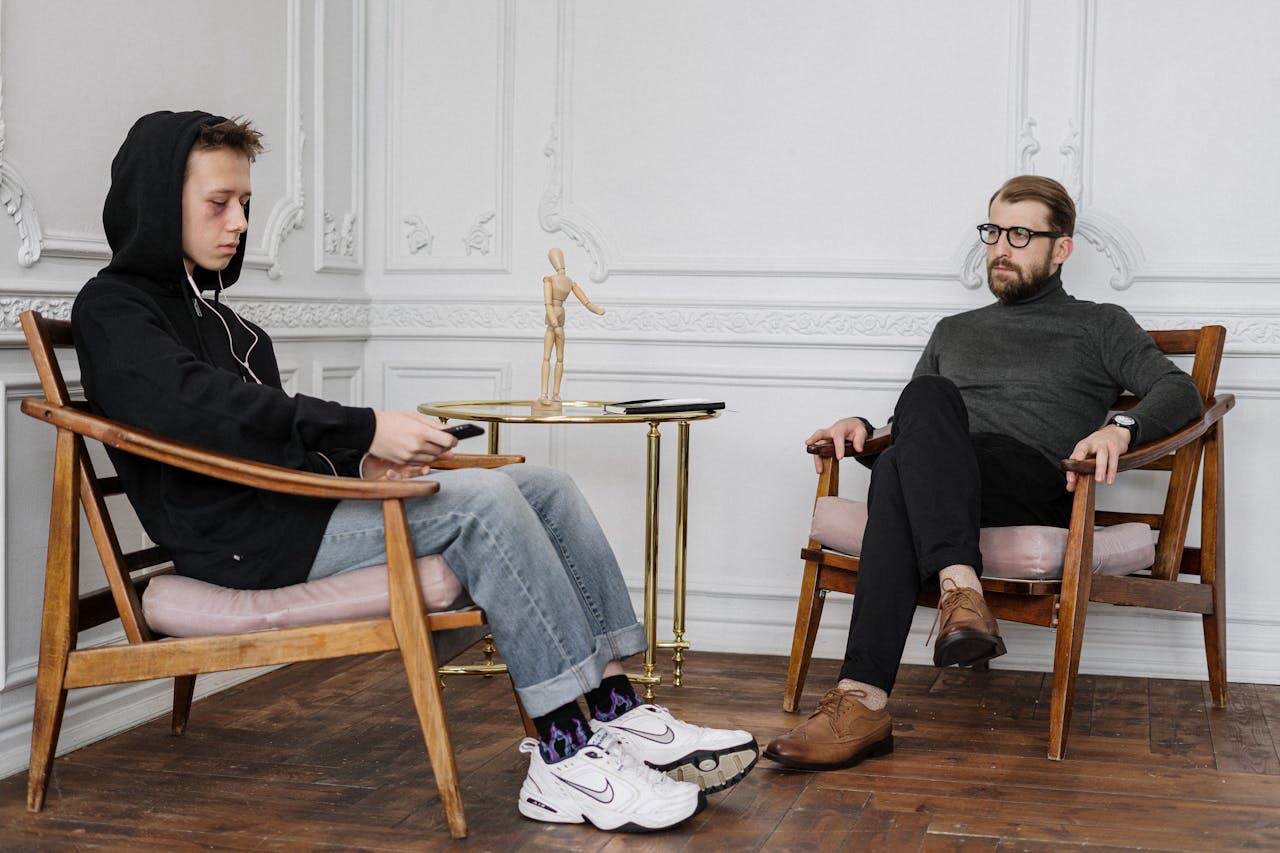According to eminent Psychologist Carl Rogers, the counselling relationship is comprised of:
a) Warmth, responsiveness, & unconditional positive regard expressed as a genuine interest in the client and an acceptance of him as a person
b) Freedom from judgement, pressure or coercion. The skilful counsellor refrains from intruding his own wishes, his own reactions or biases, into the therapeutic situations.
c) Advice, suggestion, pressure to follow one course of action rather than another – these are out of place in therapy.
d) Permissiveness regarding emotional expression. Once a relationship has been built, the client will feel free to express any emotion or thought.
e) Boundaries – Counsellors must maintain boundaries, such as ending sessions on time or intervening if a client is a threat to himself or another person.
Six Necessary and Sufficient Conditions
Carl Rogers stated that ‘for constructive personality change to occur, it is necessary that these [six] conditions exist and continue over a period of time.’
The conditions are:
a) Psychological contact between counsellor or therapistand the counselled
b) The counselled is incongruent (anxious or vulnerable)
c) The counsellor is congruent or genuine or integrated in the relationship
d) The counsellor shows unconditional positive regard towards the client
e) The counselled receives empathic understanding of his internal frame of reference from the counsellor
f) The counselled perceives acceptance and unconditional positive regard
Clients can feel wholly and completely accepted by ‘another’, paving the way for them to be able to accept themselves.
“No other conditions are necessary. If these six conditions exist and continue over a period of time, this is sufficient. The process of constructive personality change will follow.”
How to Build a Therapeutic Relationship
The client and therapist relationship have been widely researched. Evidence has shown that it forms the basis of success within counselling and psychotherapy.
Evidence has shown that the therapeutic relationship is created through a shared feeling of:
a) Trust
b) Respect
c) Genuine care
d) Honesty
These key points can be linked directly to the six core conditions mentioned earlier.
The therapeutic relationship begins from the moment the counsellor and client meet.
Upon first meeting, both people show who and how they are and are able to form an impression of ‘the other’.
Forming a solid relationship can empower clients to delve deeper into the issues they may be facing and ‘open up’ emotionally to the counsellor.
For some clients, this may be the first time that they have ever shared their innermost thoughts and experiences with another, outside of their immediate family or friends. Indeed, it may be the first time they have shared anything about themselves at all.
Within therapeutic relationships, individuals can express themselves honestly and openly, without any immediate attachment or fear of judgement or rejection.
The client or therapist relationship is often different to any other, because of this.
Being a real and genuine person within the relationship can further enable work at relational depth.
Without a therapeutic relationship in counselling and psychotherapy, there would be no basis for work to take place. It is vitally important in ensuring needs are met from the onset.
When Does Relational Depth Occur?
Relational depth cannot be ‘planned out’ and is not a ‘strategy’, rather, something that occurs between individuals as an organic experience. It occurs moment to moment, within the here and now.
Relational depth is likely to be experienced in moments/enduring moments, rather than full sessions spent working in this way. Personal development for counsellors is essential in order for relational depth to occur.
Counsellors must be comfortable and accepting of all parts of themselves, in order to be accepting of all parts of another. The importance of personal development cannot be underestimated.
Key Aspects of Relational Depth in Counselling and Psychotherapy
Evidence has shown that relational depth has been achieved and experienced by clients when therapists are:
a) Warm
b) Personal
c) Genuine
d) Human
Relational depth may not be reached when therapists are:
a) Asserting control over clients.
b) Meeting their own needs within the process.
c) Have pre-existing hopes for the client.
d) Attempts to ‘fix’ the client.
e) Focuses on theory and skills rather than present moment experiencing.
f) Spends time attempting to formulate responses/suggestions to problems.
Empathy and the Counselling Relationship
Empathy is foundational to an effective counselling relationship. Empathy involves understanding your clients’ worlds as they do, without imposing your own values, biases, and judgments. It can be challenging for counsellors to develop empathy with certain clients.
For example, some beginning counsellors have disclosed that they would have a difficult time empathising with someone with different spiritual beliefs, a different sexual orientation, or a non-binary gender identity.
Empathy is not the same as adopting your clients’ values, beliefs, behaviours, or ways of understanding the world as your own. Empathy is about seeking to understand the experiences, feelings, and world-views of another person. You don’t have to experience everything that your clients have experienced to have empathy. Every counsellor has a difficult time working with some clients. If you are having trouble empathising with a client, it is always better to seek supervision and to focus on self-care.

